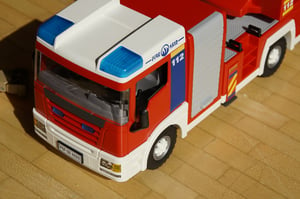 This week, the New Republic ran an article, “The Hell of American Day Care: An Investigation into the barely regulated, unsafe business of looking after our children.” The article reviewed the condition of child care in America today and highlighted the Texas child care program where a fire killed four of seven young children being cared for by Jessica Tata in February 2011.
This week, the New Republic ran an article, “The Hell of American Day Care: An Investigation into the barely regulated, unsafe business of looking after our children.” The article reviewed the condition of child care in America today and highlighted the Texas child care program where a fire killed four of seven young children being cared for by Jessica Tata in February 2011.
In many communities throughout America, child care is hard to find, harder to afford, and too often – of questionable quality. Quality child care matters to ensure that children are both safe and in a setting to promote their healthy development. Underlying the New America article is the dismal state of child care policies throughout America.
Child Care Centers
Child Care Aware® of America released its 7th child care licensing report last week, “We Can Do Better: 2013 Update,” which scored and ranked the states on state child care center licensing policies and oversight. No state earned an “A” and only the Department of Defense (DoD) earned a “B.” The remaining top 10 states (New York, Washington, North Dakota, Oklahoma, Texas, Wisconsin, Delaware, Illinois, Minnesota and Tennessee) earned a “C.” Twenty-one states earned a “D” and the remaining 20 states earned a score of 60 or less, a failing grade.
Key Findings from the Report:
- Only 13 states require a comprehensive background check for child care center staff (a fingerprint check against state and federal records, a check against the child abuse registry and a check against the sex offender registry).
- State training requirements vary greatly. The reality is that most state training requirements are minimal. States sometimes specify training topics, but many do not mention the number of hours needed to complete this training. There is no assurance that topics are covered in a comprehensive or systemic way or whether an array of required topics becomes a checklist only – with little likelihood of strengthening the knowledge and behavior of child care providers.
- Only 16 states address each of 10 basic health requirements and 10 basic safety requirements recommended by pediatric experts. (For example, only 9 states and DoD require initial training in CPR for all staff).
- Even the strongest program requirements are undercut by ineffective monitoring. Nine states (Alabama, Alaska, California, Colorado, Connecticut, Idaho, Massachusetts, Minnesota and Vermont) do not require inspections at least once per year.
Family Child Care Homes
Last year, Child Care Aware® of America released its 6th child care licensing report, “Leaving Children to Chance: 2012 Update,” which scored and ranked the states on state family child care home policies and oversight. Of the top 10 scoring states, no state earned an “A.” Only one state (Oklahoma) earned a “B.” Three states (Washington, Kansas and Delaware) and DoD earned a “C,” four states (Maryland, Alabama, the District of Columbia and Colorado) earned a “D” and the 10th state – Massachusetts, with a score of 86 out of 150, at 57 percent, earned an “F” (as did all remaining states).
Sixteen states scored zero. Eight scored zero because they do not inspect family child care homes before licensing or regulating them (Iowa, Michigan, Montana, Nebraska, Pennsylvania, South Carolina, West Virginia and Texas). Another eight states scored zero because they either allow more than six children in the home before requiring a license or do not license small family child care homes (Idaho, Indiana, Louisiana, Mississippi, New Jersey, Ohio, South Dakota and Virginia). For example, South Dakota allows 12 children to be in a home before requiring a licensing (the 13th child triggers the state licensing requirement).
Key Findings from the report:
- Only 11 states require a comprehensive background check for individuals who wish to operate a child care business out of their home.
- State training requirements are minimal with five states (Connecticut, Hawaii, Missouri, Pennsylvania and Texas) not requiring any hours of training before operating a home child care.
- Only 15 states address each of 10 basic health requirements and 10 basic safety requirements recommended by pediatric experts.
- Even the strongest program requirements are undercut by ineffective monitoring. About half the states do not require at least one inspection per year.
What Can Be Done?
The Child Care and Development Block Grant, the federal law that allocates funds to states for child care and sets parameters for state child care laws, has not been reauthorized in 17 years (since 1996). The law does not require background checks. The law does not require training for child care providers. The law does not require inspections. That’s just wrong. It’s time to change the law.
Nearly 11 million children under age five are in some type of child care setting every week. First, children should be safe in child care. Second, child care settings should promote their healthy development.
The President has proposed a comprehensive early learning strategy to promote safe, quality settings to foster healthy child development for young children from birth through preschool-age. For many of the 11 million young children in child care every week, child care is their early learning setting. As Congress considers an early learning vision for America, fixing child care should be the cornerstone.
Parents need child care in order to work and a strong economy depends on working parents. At the same time, parents cannot be expected to monitor child care settings while they are at work. Any early learning plan needs to build out by fixing child care so that all children are in quality settings, which begins with safety. Parents want it; children need it. It’s time to fix child care.
Join us by calling on Congress to fix child care as part of any early learning plan to be considered.






